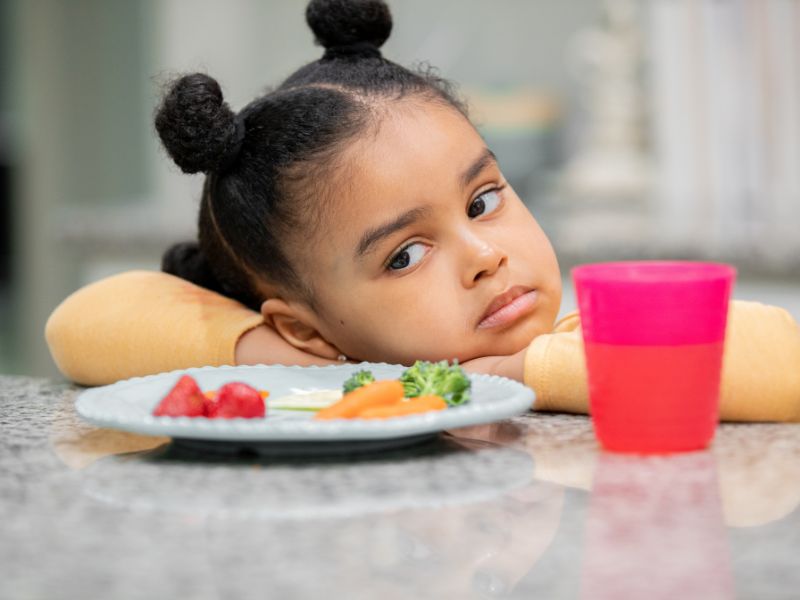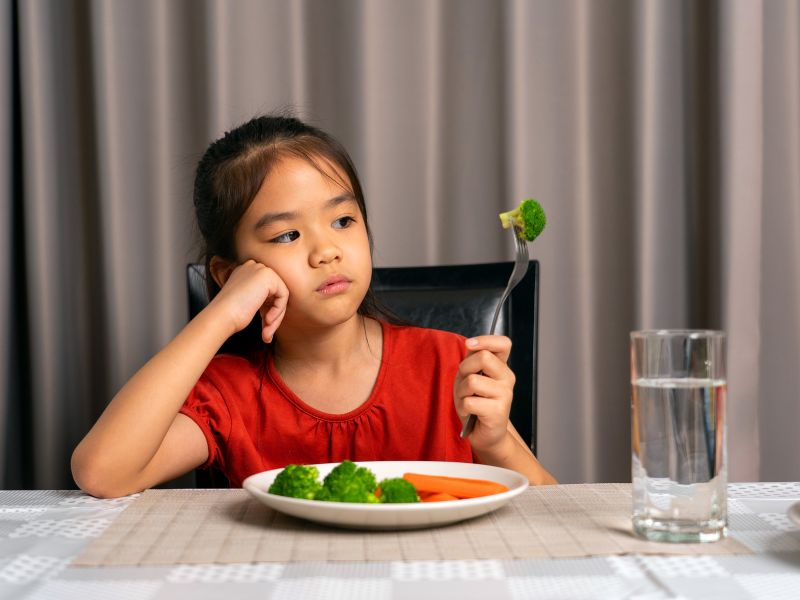Picky eating is a common concern for parents around the world. If you’re wondering why your child is a picky eater, rest assured that it’s a normal development phase. Nonetheless, gaining insight into the underlying causes of this behavior can assist you in better managing mealtime challenges.
Evolutionary Roots
One possible explanation for picky eating is rooted in our evolutionary history. Our ancestors may have developed a preference for certain foods to avoid potential environmental dangers. Children may instinctively avoid bitter or unfamiliar flavors as a protective mechanism. This evolutionary trait can make children more cautious about trying new foods.

Canva. com
Taste Sensitivity
Children have more taste buds than adults, which can lead to heightened sensitivity to flavors. Bitter tastes, which are often present in vegetables, can be particularly intense for kids. This heightened sensitivity can make certain foods less appealing to them.
Texture And Sensory Preferences
Children are also sensitive to the texture of food. Some kids may dislike certain surfaces, such as mushy or slimy foods, making them appear picky. Additionally, sensory processing issues can contribute to a child’s aversion to certain textures or sensations in their mouth.
Developmental Stages
Picky eating often occurs during specific developmental stages. Toddlers, for example, are exploring their newfound independence and may exert control over their food choices to assert themselves. As children mature and progress through various stages of development, their taste preferences have the potential to evolve, leading to a gradual increase in their willingness to experiment with different foods.

Canva. com
Familiarity And Routine
Children tend to feel more comfortable with familiar foods. Familiarity provides a sense of security, and kids may resist new foods simply because they’re unfamiliar. Encouraging a routine of exposing them to different foods over time can help expand their palate.
Peer Influence
Children are influenced by their peers. If your child’s friends are picky eaters, they may be more inclined to mimic their behavior. Conversely, if they have friends who enjoy a variety of foods, they may be more open to trying new things.
